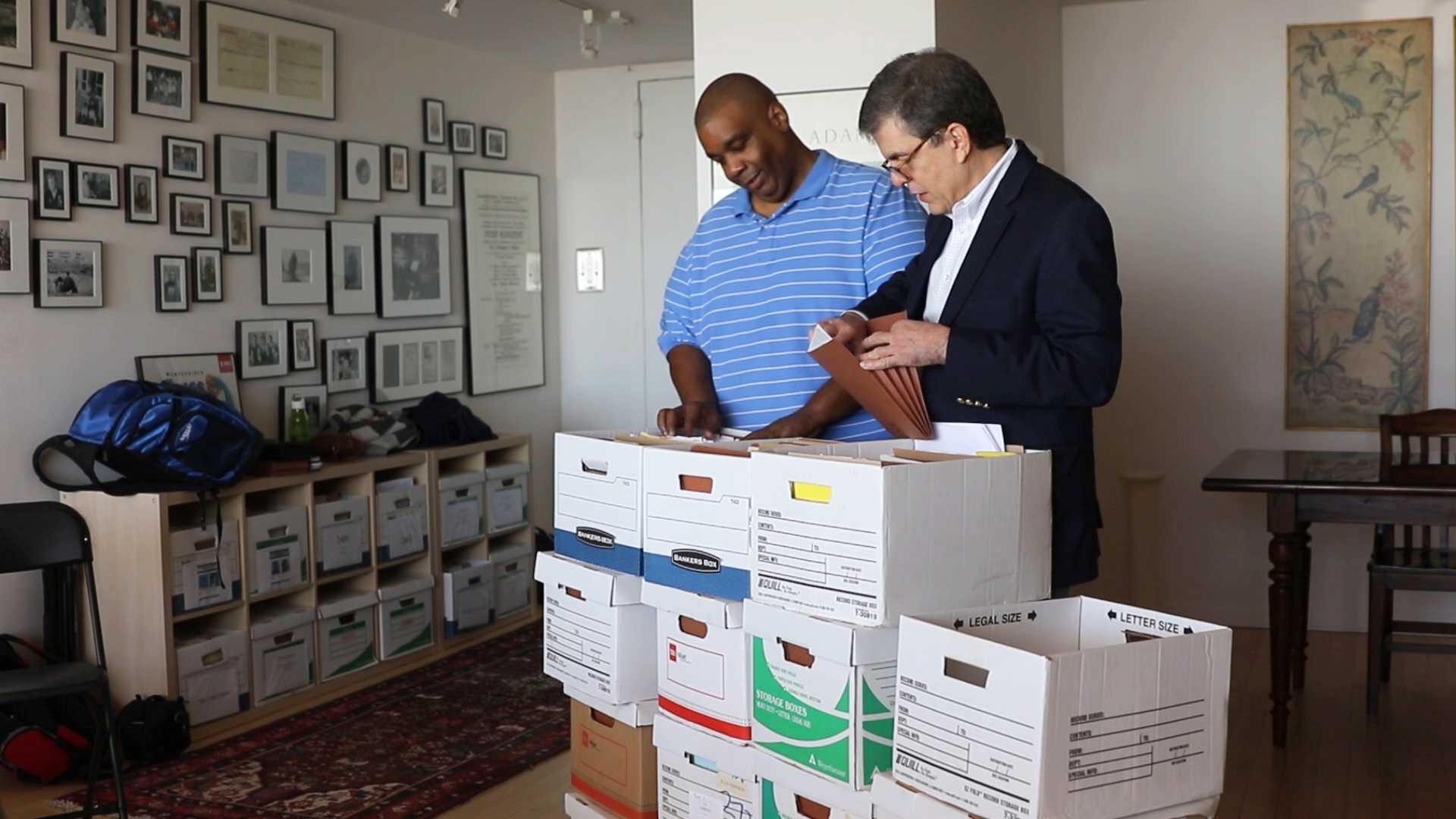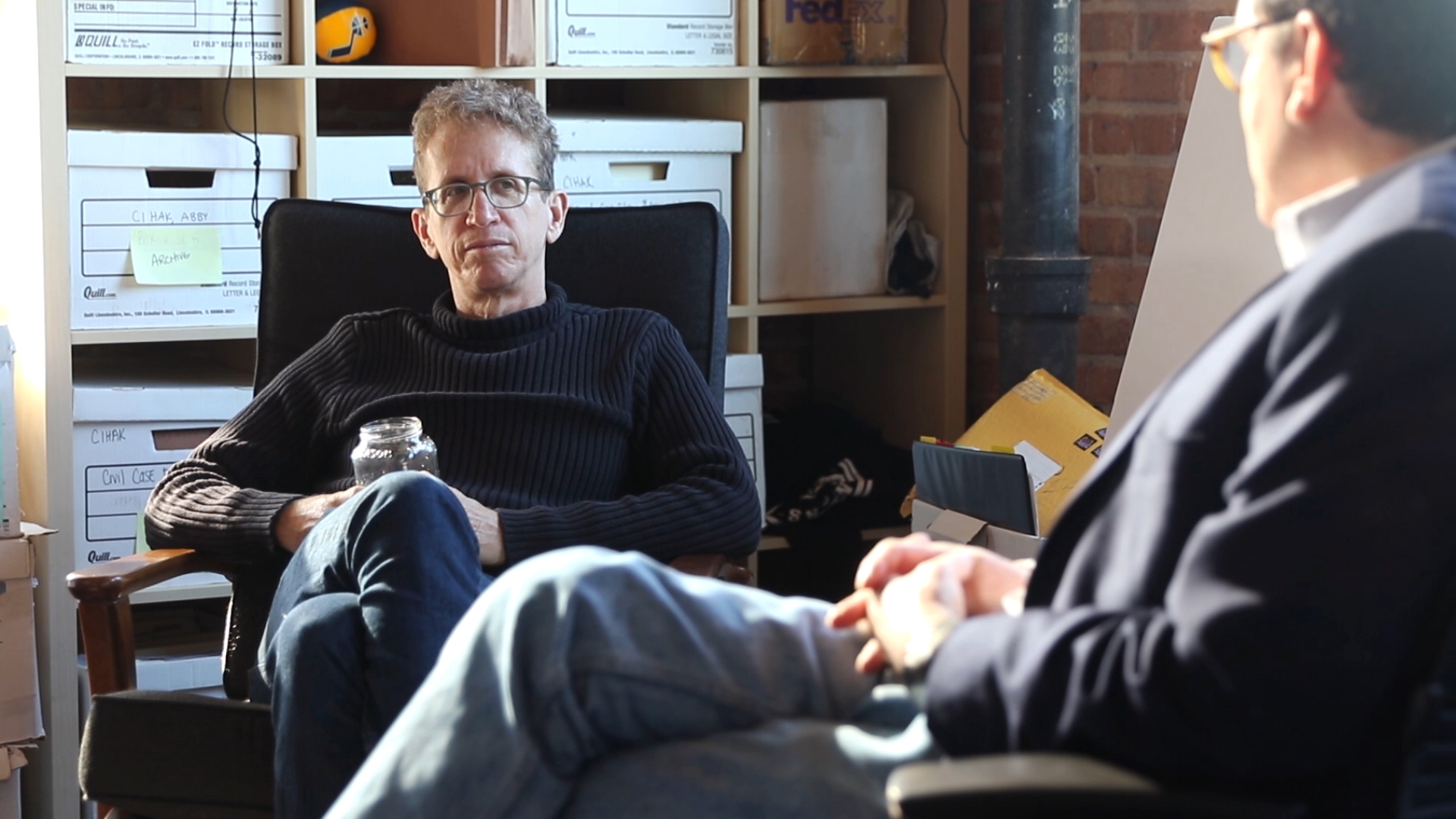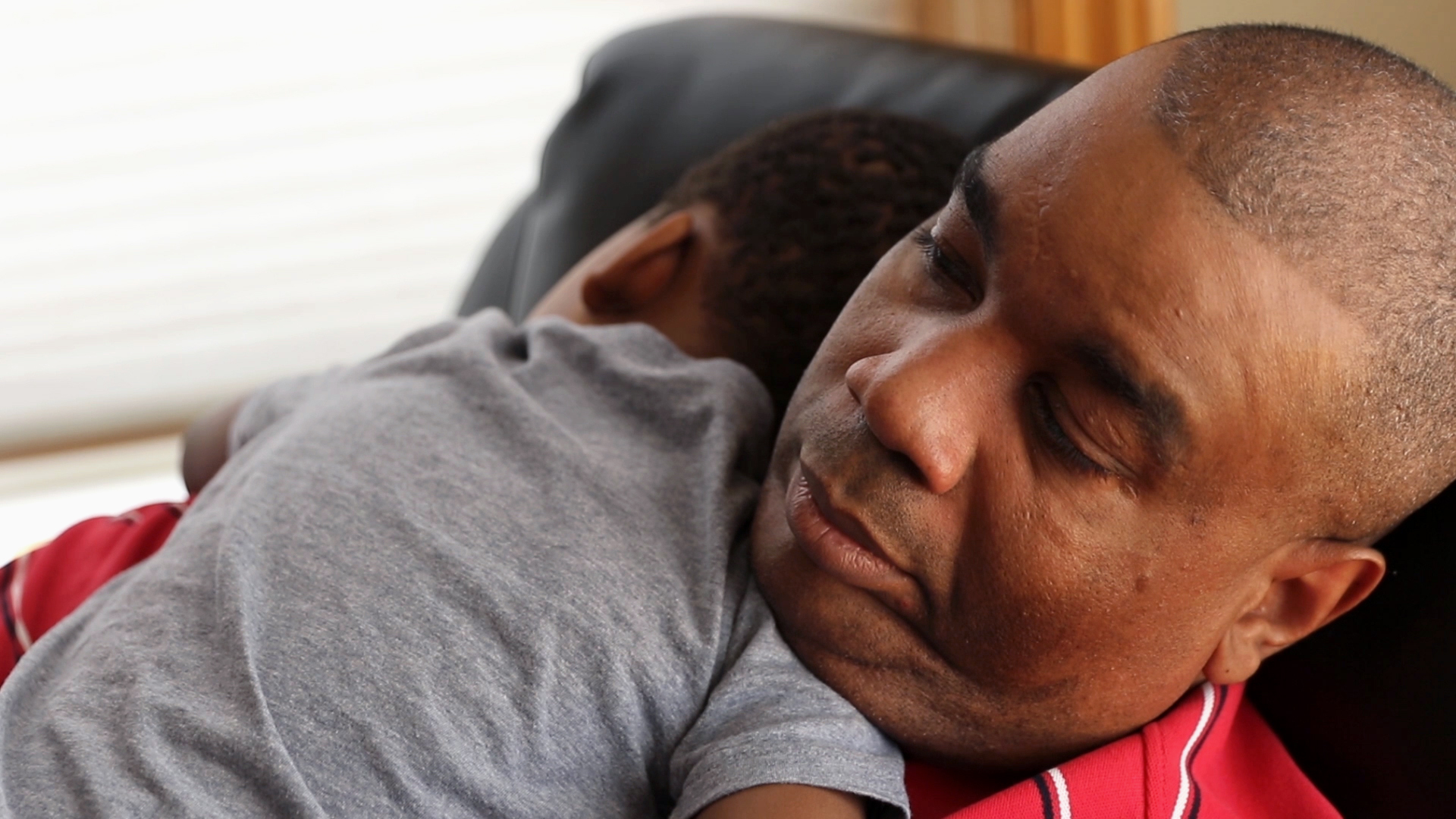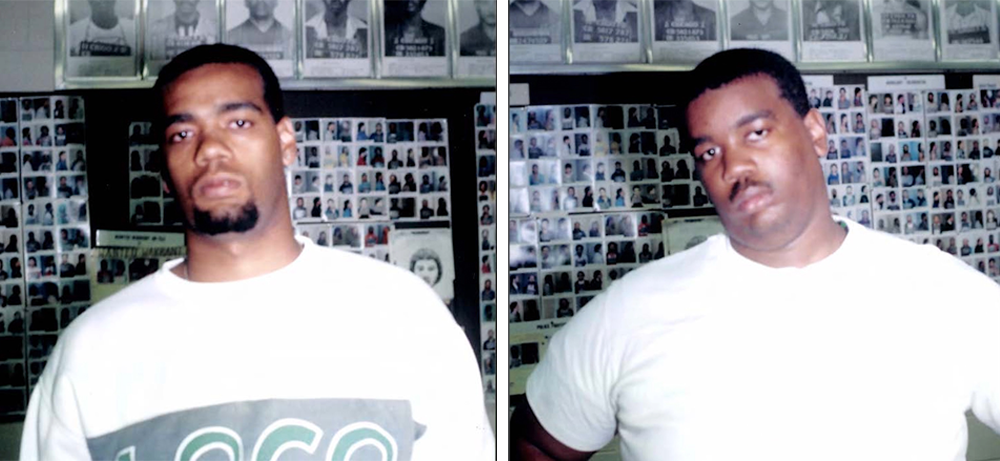CHICAGO — The two grown brothers stood in tears together in the hallway of Chicago’s George Leighton Criminal Courthouse in February 2004, moments before their murder retrial was set to begin.
Juan and Henry Johnson had spent 11 years locked up together in brutal Illinois penitentiaries, convicted of stomping a man named Ricardo Fernandez to death for which they were each sentenced to 30 years in prison.
But the courts had ordered a new trial, finding that new evidence cast significant doubt on their guilt. Now, as the day for that trial finally arrived, their attorney, Dan Stohr, recalled what happened as Assistant Cook County State’s Attorney Lou Longhitano approached with a deal.
Plead guilty to second-degree murder, Longhitano said, and the state would not require either brother to spend a day more in custody than the 11 years they both had already served. Otherwise, the state would try to return them back to prison for the rest of their sentences.
Juan Johnson, the younger of the two, asked Stohr what to do. But Stohr, who had been fighting in court for the brothers since their conviction, said he had no advice to give.
“As a criminal defense lawyer I know how to talk people into pleading guilty, and I wasn't about to talk either of them into pleading guilty, especially because I knew they were innocent,” Stohr said.
As the brothers, both very large men, broke down in the hallway, Stohr recalled, “It was an incredibly emotional moment.”
Similar decisions go on, less dramatically, every day in courthouses across America.
The United States criminal justice system is built on plea bargaining. Across the country, few criminal charges ever get to trial. More than nine in 10 that end in a guilty verdict are the result of a plea bargain, in which the defendant agrees to admit — or at least not to contest — guilt.
There is little doubt most are guilty. But not all.
Last year, a coalition of news organizations set out to study the phenomenon of defendants pleading guilty despite significant evidence of their innocence: How often does it happen? What leads anyone to admit guilt to a crime they did not commit? And what is the impact, both on those who falsely admit guilt and on society?
This article, companion reports on PBS NewsHour and Capital News Service, represent the first in a series of reports to answer those questions. The research continues. The organizations have identified more than 100 cases in which suspects pleaded guilty despite strong evidence of innocence. It occurs, the research shows, for a variety of reasons, often with dramatic consequences.
Ninety years ago, Columbia professor Raymond Mosley warned that plea bargaining was taking over the American justice system, a process Mosley called “more akin to a game of poker than to a process of justice.”
It was not always that way. In early common law in England, trials occurred in rapid motion, defendants were without lawyers, and judges generally were reluctant to accept guilty pleas.
As the United States adopted an increasing series of procedural safeguards for defendants, trials became more cumbersome. Every step of the process — from pretrial discovery through jury selection and on through to verdict — demands precious time and money. That, and other factors, caused fewer and fewer cases to go to trial.
Rather than an adjudicated result by an impartial fact-finder, prosecutors huddle in private with defense attorneys to settle on an outcome without the need for a trial. In return for pleading guilty and giving up their constitutional right to a jury trial, defendants generally get a more lenient sentence, or are permitted to admit guilt to a less-serious charge.
Justice or not, the U.S. justice system now is completely reliant on plea bargains. In 1839, 15 percent of felony charges brought in Manhattan and Queens ended with plea bargains, one study found. By 1879, the percentage was 80 percent, and the number has now climbed well over 90 percent.
Budget cuts have left public defenders and prosecutors strapped for money, removing any chance they could prepare every case for trial; courthouses lack enough judges and courtrooms to accommodate each defendant having a criminal trial.
And so plea bargains became the only way to keep the system from shutting down.
It is a process that long has drawn concern from legal experts who contend defendants suffer negative consequences for exercising their constitutional right.
“Plea bargaining, like torture, is coercive,” wrote Yale Law School Professor John Langbein four decades ago.
Caguas Nightclub was crowded with members of different street gangs attending a birthday celebration on Sept. 9, 1989, when the brawl erupted. According to testimony, chairs and bottles were thrown and shots fired before the fracas flowed onto North Avenue and adjoining Western Avenue. Fights were breaking out up and down the crowded streets.
Ricardo Fernandez, a member of the Latin Eagles, was found lying in the street when police arrived, his face bloodied.
The next day, Chicago Police Department detective Reynaldo Guevara showed up at Juan Johnson’s house, less than two blocks from the nightclub, and brought him to the station for questioning. Hours later, Henry Johnson went to the station to bail his brother out, assuming he was picked up on something like a minor drug charge. When Henry announced he was there for Juan and was Juan’s brother, he too was held.
Both Johnsons, members of the Spanish Cobras, were charged with beating Fernandez to death, an accusation that shocked them. They contended that they had tried to pull Cobras out of the fight until they left, fearing police would soon arrive to lock up everyone.
“I had no idea anyone died that night,” Juan Johnson said.
Their photographs, along with those of two other members of the Cobras, had been picked out by Latin Eagles members at the station the day after the murder. Henry and Juan Johnson, Pedro Cordrero and Hector Franco all were charged in Fernandez’s death.
Juan and Henry Johnson and Franco all had the same privately retained attorney, Richard Kagan, a flamboyant lawyer who drove a Lincoln Town Car and wore a pinky ring. Cordrero hired his own lawyer. Kagan assured the brothers that they had no need to worry. “I got this,” Henry Johnson later quoted Kagan as saying.
The four waived their right to a jury, and went on trial together before Cook County Circuit Judge Shelvin Singer. The trial was, as the appellate court later described it, “sporadic and disjointed,” with testimony taking place on four separate days over the span of nine months.
The evidence against them was not strong. A member of the Latin Eagles named Juan Michel said he saw Juan Johnson beat Fernandez with a wooden board and watched Henry Johnson strike him with a baseball bat.
But the corroboration was thin. A second gang member testified that he saw a man who “looked like” Juan Johnson hitting Fernandez with the board. And a third testified that he stood about 100 feet away and saw Henry Johnson swinging a stick, but said he did not see Johnson actually hit the victim.
Police Sergeant William O’Donnell, who had recovered a four-by-four board from the street the next day, testified that after being taken into custody Henry Johnson had admitted he punched someone in the face during the brawl, but denied that he ever used a bat or stick on anyone.
Kagan called just one witness during the trial, a woman who lived in an apartment above the nightclub. She testified that looking out her window, she saw Fernandez being beaten in a spot away from where the Johnsons had stood.
Juan Johnson recalled being so certain that they would be cleared of the murder that he had rented a hall for a party that night. Instead, Singer found the Johnson brothers guilty, and their co-defendants not guilty.
The brothers were shocked. Recalled Juan Johnson: “I couldn’t believe it. It was like a truck hitting you in the chest.”
The Johnsons fired Kagan and hired new lawyers who filed motions for a new trial, contending their attorney had poorly represented them. Juan Johnson was represented by attorney Dan Stohr; Henry Johnson by Dennis Doherty.

For several months after the conviction, the brothers sat in Cook County Jail as Stohr and Doherty prepared petitions to overturn the convictions, giving the Johnsons hope.
“We're still in the county jail, we're not in the penitentiary,” recalled Juan Johnson. “System's going to correct itself. That's why they're taking so long to sentence us. Everything's going to be all right. We're not going to penitentiary.”
Singer sentenced the brothers in June 1992 to 30 years each in prison, refusing to hold a hearing on the attorneys’ motions to overturn the verdict. The attorneys scrambled and returned to court a month later, seeking to file a new petition based on eyewitnesses they tracked down whom Kagan never found and who said the Johnsons were not involved in Fernandez’s death.
Judge Singer refused to permit the petition to be filed, causing the attorneys both to appeal the verdict and to appeal Singer’s decision not to permit the new post-verdict petition.
The Illinois Appellate Court in 1995 ruled there was sufficient evidence to uphold the conviction, but that Singer was wrong to prohibit the post-conviction petition that might have introduced new evidence of a wrongful conviction.
Stohr took over representing both brothers, who by then had been sent to Stateville Correctional Center, a maximum security prison in Joliet, and went to work on the new petition.
Meanwhile the brothers’ situation was grim. Housed together in a cell, they quickly discovered that violence was commonplace. Juan Johnson recently described being on the telephone with his mother when he watched as one prisoner came up behind another prisoner and struck him in the head with a homemade hatchet.
“It became so normal that my first thought was not, ‘Is that guy okay?’” recalled Johnson. “My first thought was, ‘I need to go get my shower shoes and shirt and hurry up and take a shower because we're about to go on lockdown.’”
Juan and Henry Johnson found they could not risk ever sleeping too soundly in maximum security. Nor could they show emotion; it was a sign of weakness.
Being locked up for a 30-year sentence left the brothers with a feeling of hopelessness, Juan Johnson recalled. Juan Johnson had a daughter; Henry Johnson, a son and a daughter. They worried about their children growing up without them. They worried about their mother, who had raised them and lived alone.
Worse, the women they each lived with left them, adding to their sense of isolation and despair.
Stohr, meanwhile, was busy trying to get them both home. At the long-awaited hearing on the brothers’ post-conviction petition, he presented six witnesses who said Fernandez had been stomped and kicked, not beaten with a board, and that the culprits were either white or Latino and shorter than Juan and Henry Johnson, who are African-American men more than six feet tall.
At the close of testimony Cook County Circuit Judge James D. Egan, who presided over the hearing, rejected the request for a new trial. Stohr, together with pro bono lawyers from the lawfirm Jenner & Block, turned again to the appeals court.
Once again, the Illinois Appellate Court panel reversed the circuit court. The 2002 panel decision, authored by now-retired Appellate Justice Warren Wolfson, ruled that the testimony of the new witnesses likely would have led to an acquittal.
The Johnsons were playing dominoes in the yard of Dixon Correctional Center, where they had been moved, when Stohr called with the news. Juan Johnson does not recall what occurred after Stohr told him they were coming home.
He was told that he started crying, and then passed out. He awakened to find Henry Johnson standing over him, making sure his brother was all right.
The Johnsons were brought back to Cook County Jail. Bad as the penitentiaries had been, “there's rules there,” Juan Johnson said.
By contrast Cook County Jail, when the Johnsons were there, was a facility so overcrowded that more than 1,000 detainees were forced to sleep on the floor every night. “So many people plead guilty in Cook County Jail just not to live in the jail,” Juan Johnson said.
The state tried, without success, to appeal the grant of a new trial to the state Supreme Court. Stohr and the lawyers at Jenner & Block filed motions seeking to free from custody the Johnsons, who were each being held on $100,000 bail. While the brothers had spent more than 11 years in custody, the motion noted, they were now convicted of nothing, and there was strong evidence of their innocence.
It took six months before bail was lowered and they were free, able to return home and be reunited with their children and with their mother. Henry Johnson quickly found work as a carpenter. “We started becoming human again,” Juan Johnson recalled. “We didn't have to be animals. We got to live.”
And so it was that more than a year after the new trial was ordered, the brothers were standing in the hallway of the courthouse awaiting their retrial, when Longhitano approached Stohr with his offer of a plea bargain.
Plea deals occur in courthouses across America every day. Some percentage of those who plead guilty do so despite strong evidence of innocence.
No one knows exactly how often; most defendants who plead guilty are poor, and people of color. They routinely go home and get on with their lives, and no record is left behind of the evidence of their innocence.
But some indicators suggest it happens far too often. The National Registry of Exonerations, a collaborative effort by the University of California-Irvine, University of Michigan Law School, and Michigan State University School of Law, attempts to record cases of every exonerated defendant since 1989. As of May 29, the registry had recorded 2,224 cases; of those, 406 — 18 percent — involve defendants who first pleaded guilty and later were exonerated.
Experts note those cases are likely an extreme undercount. Suspects who plead guilty waive, to a large degree, their right to appeal or contest the charge. In several states, pleading guilty severely hinders a defendant’s ability to later seek DNA testing because of statutes or court rulings, or both. They cannot, in some states, seek a certificate of innocence no matter how clearly innocent they may be.
Many of the innocence projects across the country will not even investigate convictions that were the result of guilty pleas. So it is the exception when a person who pleaded guilty is later able to win exoneration.
The system seeks finality, and that is, for the criminal justice system, one benefit of a guilty plea.
The new research by the coalition of news organizations and university programs has identified more than 100 cases of people who either pleaded guilty or did not contest their guilt despite significant evidence of innocence, and are left to live with those pleas.
The research has identified a variety of factors that can drive innocent suspects to plead guilty. And it happens in cases involving the smallest crimes on to the most serious.
Overworked or incompetent defense attorneys may not properly explore claims of innocence. Overly aggressive prosecutors may overcharge crimes, and then offer to drop many of the unfounded excessive charges in return for a guilty plea.
Impoverished defendants, locked up awaiting trial with bail set above their reach, may grab plea offers in return for being released. Defendants who are not in custody, and facing misdemeanor charges, may become frustrated by arranging to appear in court only to find cases continued again and again.
Often those who plead guilty are people of color who may have less expectation of justice. “It seems crazy that an innocent person would plead guilty,” said Stohr, “but when you have been pushed around and ground down, that may seem like the best choice under the circumstances.”
Guilty pleas may be rational choices for defendants regardless of their wealth, ethnicity or education.
Professors Lucian Dervan, then at Southern Illinois University, and Vanessa Edkins of the Florida Institute of Technology, demonstrated that point in 2013, when they reported an experiment they did at one unnamed university. A group of students were invited to volunteer for a research program; after taking an introductory logic examination, some of the volunteers were told there was statistical evidence that proved they had they had cheated on the examination — an accusation that was completely made up.
Called in one by one, some of those students were told their cases would go to the disciplinary board, where harsh consequences awaited, unless they admitted cheating. The rest were told their cases would go to the disciplinary board, but were told the consequences would be less severe.
The result? More than half the students who had not cheated admitted they had done so to avoid being reported. And when the threat of harsh consequences was added, an even greater percentage falsely admitted to cheating.
After Stohr declined to give his clients advice on accepting the plea deal, Henry Johnson turned to his brother in the hallway and asked what Juan Johnson intended to do. As Juan Johnson recently recalled, “I looked at him and I told him, 'I love you, but you got to make this decision on your own. I can't live with that decision.'"
The brothers, little more than one year apart in age, were close. And in prison, they had stuck together.
But Juan Johnson was unwilling to falsely say he killed someone, whatever the consequences. It was a decision supported by his daughter, who urged him to stand up for himself.
Henry Johnson, in contrast, had no faith in the system. He feared if he went to trial and he lost, he would be locked up for another 10 years and he would never get to see his children “as a free man, as a free father,” Stohr said.
Henry Johnson agreed to plead guilty to a crime he knew he had not committed. He was taken back out of the courtroom and into lockup, while Juan Johnson’s retrial began that day.
The retrial was very different from what transpired years earlier. The defense presented the string of witnesses who said they saw the incident and Fernandez had been struck, beaten and stomped by a group of Latino men smaller than the Johnson brothers. The defense also put on trial evidence that the case against the Johnsons had been manufactured by the detective, Guevara.
A member of the Cobras, Samuel Perez, testified that the day after the murder Guevara put him in a car and told him that he knew a Cobra had killed that Eagle. Guevara, according to Perez, showed him a picture of Juan Johnson and said: “Which Cobra, he didn’t care.”
“I took it as a threat,” Perez recalled. “I took it that either...I was going to get hooked up for that murder or Juan Johnson could get hooked up for that murder.”
Perez testified that Guevara took Perez to the police station and put him in the room with Juan Michel, Edwin Gomez and a third Latin Eagle member, Sal Ortiz. On the table, Perez recalled, were photographs of the four men who would be charged with murder. Perez testified that he told Eagles gang members that those were the men they were looking for.
Ortiz testified that Guevara put him in the room with the others, and told him he was to identify Juan Johnson as the man who beat Fernandez to death. Ortiz testified that he had not in fact seen the beating.
At the conclusion of the case, the defense attorneys told the jury that Guevara was a bad cop who had framed Johnson of murder. They presented evidence that there had been complaints about Guevara in other cases.
The prosecutors contended Juan Johnson was guilty, and that gang members had conspired to go after a good cop.
As the jury began deliberating, Juan Johnson panicked. He asked Stohr if he could still take the deal he and his brother had been offered before trial.
“Juan was melting down when the jury was out,” Stohr recalled. “If he could've, he would've changed his plea at that moment to guilty because he was so frightened.”
The jury came back quickly, and decisively: Juan Johnson was not guilty.
Juan Johnson hired Stohr and Jon Loevy, a civil rights lawyer, to file suit against the city and Detective Guevara over his wrongful conviction. Once again, the attorneys called to the stand witnesses in a subsequent civil trial in U.S. District Court to testify that Guevara framed Johnson, and that the city should have known Guevara was untrustworthy.
The jury awarded Juan Johnson what was then the largest verdict against the city for police misconduct: $21 million. The city appealed, but then agreed to a $16.4 million settlement.
The reaction was swift. “After the verdict, when Ray Guevara was found liable for having cheated, we were buried in letters from people saying, ‘I'm reading about it, this is exactly what happened to me,’” recalled Loevy. “‘He made up a case on me.’ Then we had to start investigating those and we found a lot of meritorious cases.”

Guevara is now retired. His attorneys long contended that gang members were falsely accusing him, that it was a conspiracy. But recently Guevara began taking the Fifth Amendment, and refusing to testify, when called to the stand about his actions.
In April, Robert Bouto became the 13th person to have his conviction overturned based on evidence that he had been wrongly convicted in a case investigated by Guevara. Bouto spent 23 years in custody before he was released when two witnesses said that Guevara had caused them to falsely state they saw Bouto commit a shooting in the Albany Park neighborhood of Chicago’s North Side.
But even as, one after another, Guevara’s cases are being reversed, Henry Johnson remains convicted of murder.
The facts of his case were no different from his brother’s. The difference was the choice he made.
Juan Johnson lives in a modest bungalow on the Northwest Side of Chicago, not too far from where Henry Johnson lives with his family.
Juan Johnson spends his days caring for his mother and his two grandchildren. He enjoys fishing and often thinks about living somewhere far from Chicago.

Henry Johnson suffers emotional baggage. He works long hours for the same company he joined when he first was released from prison; too hard, in his brother’s opinion. He lives with his family, and has trouble putting what happened behind him.
Henry Johnson declined to talk for this project. “Henry is severely traumatized by the experience,” says Stohr. “It's as if everything reminds him of his experience in prison. It's like an itch that doesn't go away. It has profoundly psychologically scarred him.”
But Stohr notes something else: “It's really ironic that Henry Johnson was the defendant, the client in which much of this evidence was developed, but he pled guilty. He’s suffering the consequences of pleading guilty, when through the investigation in his case, or as a result of the investigation in his case, close to a dozen people who were either serving life or very long sentences have been released from prison.”




